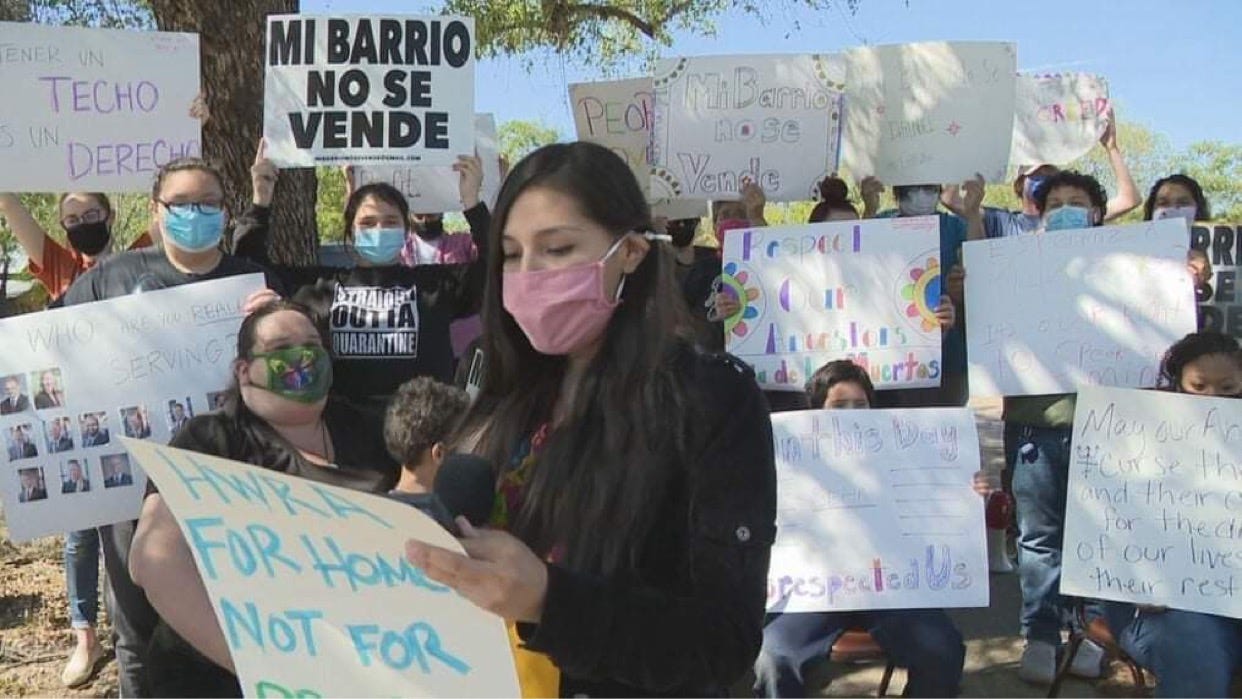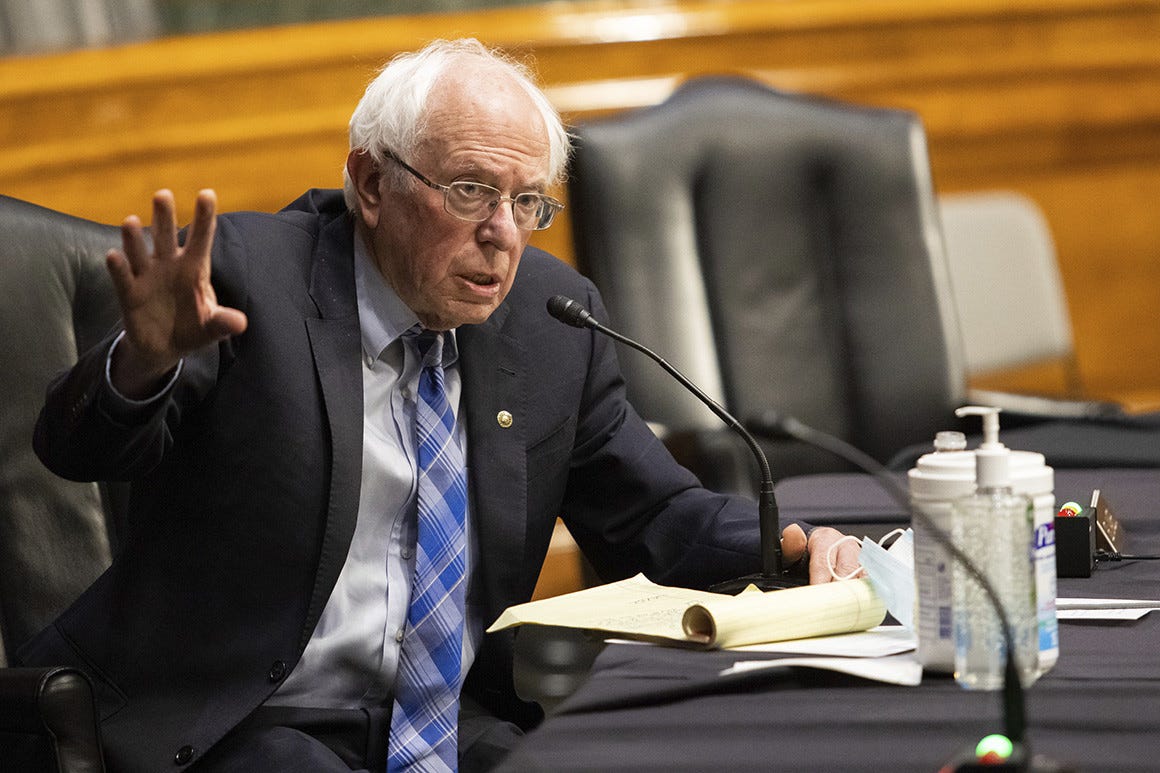The Politics of Change
Three women running for office to address inequities in their local and state politics as Bernie Sanders uses the gavel
Hello all, and welcome to Spring—at least here in New England, where things are finally starting to warm up.
Over the past two weeks, I’ve profiled three progressive women fighting for change—Jennifer Carroll Foy, running for Virginia Governor; Michelle Wu, a mayoral candidate in Boston; and Teri Castillo, who hopes to win a seat on the San Antonio City Council—for The Appeal.
Here’s a sample of the stories, with a link to each profile.
Teri Castillo on the campaign trail. Photo: News4SanAntonio (WOAI)
If sworn in next year, Carroll Foy plans to codify an eviction moratorium through to the end of 2022 and establish inclusionary zoning requirements. The latter would aim to balance the needs of the commonwealth’s growing population by requiring private developers to set aside and subsidize affordable housing.
“The way that we get rid of our segregated schools is by desegregating our housing,” Carroll Foy said. “That’s how we address the inequities in our education system.” To help the commonwealth’s poorer communities, she also plans to tackle opiate addiction, unemployment, and child care costs. To do so, she said she’ll invest in mobile clinics, invest in and overhaul the Virginia Employment Commission, and prioritize paid family and medical leave.
“When you have outcomes being determined by a person’s wealth or financial circumstances or your race and sometimes even your gender, that is problematic,” said Carroll Foy.
No matter who wins the election, Boston’s next mayor, like others around the country, will have to figure out what recovery from the COVID-19 crisis looks like.
“Boston is a city that has everything we need to solve these challenges,” Wu told The Appeal. “We have the resources. We have the activism, we have the ideas. We just need the urgent leadership that lifts up our communities.”
District 5 is literally, Castillo said, an example of the wrong side of the tracks: “Completely different infrastructure and quality of housing, even a heavier police presence, depending on which side of the train tracks you were on.” As a result, she said, the neighborhood—which has “great real estate, great use of downtown transportation, good food”—is a target for developers, and policy that helps residents is thus hard to come by.
Castillo’s housing policies would change that. If elected, she’s hoping to push for millions in existing federal Department of Housing and Urban Development funds to be allocated to owner-occupied rehabilitation projects, the expansion of affordable housing stock, and robust public oversight of housing around the city so that those with fewer resources are not overwhelmed by legal and institutional challenges.
At Blue Tent, I wrote a long profile on how the left is looking at Bernie in the Biden era as he uses institutional power for progressive goals:
Sanders helped revolutionize the Democratic Party, said Center for Popular Democracy’s co-Executive Director Ana Maria Archila. The senator’s campaigns helped to mainstream progressive ideals like a higher minimum wage, a shift from funding war to funding people, and Medicare for All within the Democratic Party. For that alone, said Archila, Sanders can take credit for helping to fundamentally reshape the political landscape.
Today, Sanders has more mainstream credibility with the party, including those to his right. That’s in part because of his work to get Biden elected, Archila said.
“He’s a deeply principled, thoughtful person who told us every day that goal number one is defeating Donald Trump because he’s very dangerous,” said Archila. “And goal number two is making sure that … the government is working for people, that democracy works for people.”
And detailed how he’s wielding his gavel by calling for hearings on wages, among other things:
Sanders called Thea Lee, president of the Economic Policy Institute, to testify about the decades of intentional economic policy that has concentrated power and wealth in the hands of the rich and huge corporations.
“The result is a labor market where—contrary to neoliberal economic equilibrium models—actual wage levels for most workers reflect generations of accumulated systemic racism, sexism and occupational segregation; where the federal minimum wage is egregiously inadequate, leaving too many workers below a decent and adequate standard of living; where workers’ ability to join in a union and bargain collectively has been eroded; and where highly profitable corporations remunerate their executives lavishly, but choose to pay poverty wages to their front-line and production employees,” Lee said in prepared remarks.
Finally, at Insider, I addressed the attempt by the GOP to rewrite reality and claim that moderates are still a viable force in the party.
"Progressives need to celebrate these conservatives as heroes," gushed the Washington Post's Eugene Robinson.
"I never thought I'd have to share a foxhole with some of the nation's most doctrinaire conservatives," he added.
But Robinson shouldn't share anything with them other than his disdain.
Thanks for reading—more to come, including an interview with a comedian/journalist whose video of a Stop the Steal protest in January was removed by YouTube without a clear explanation.





